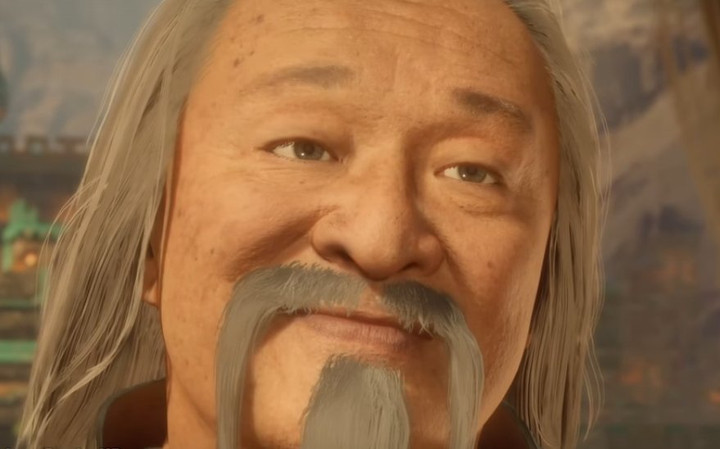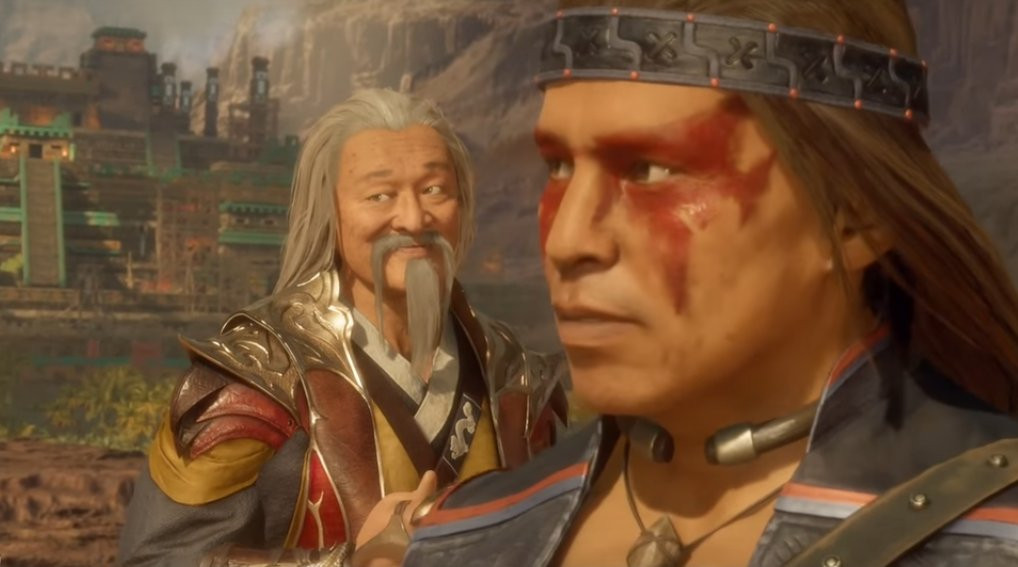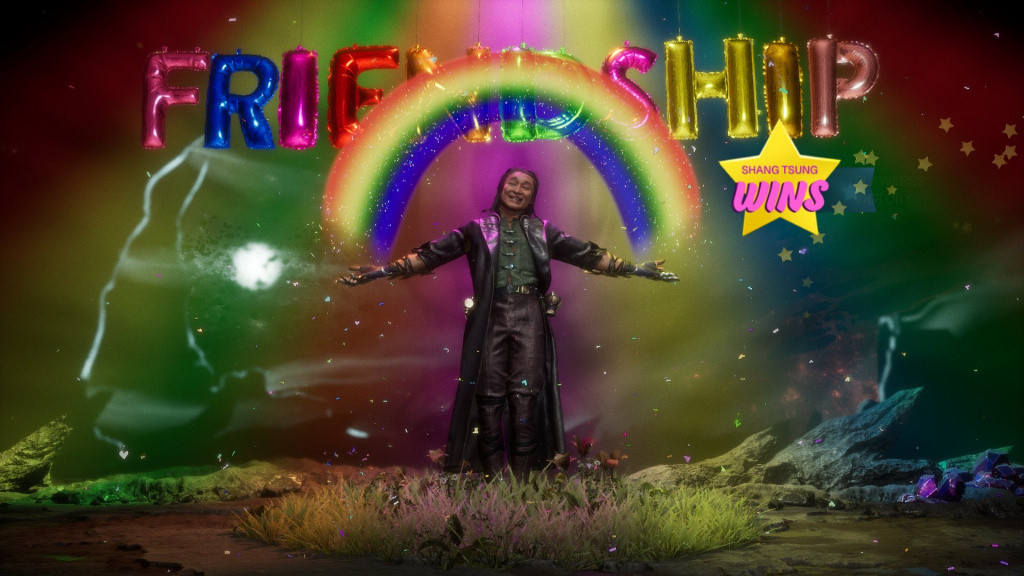There’s always been an irresistible camp to Mortal Kombat. The franchise may conjure images of polygons pulling out spines with B-movie glee over bellows of ‘fatality’, but this is a universe where beefy warriors squeeze into colour-coded outfits, conjure lightning from their hands or, in Sindel’s case, slaps foes into fleshy puddles with grey wigs.
As graphics became more realistic, Mortal Kombat 11 offset gruesome with extra goofiness. Johnny Cage crushes skulls with acting awards, while Sharpshooter Erron Black bounces bullets off coins to blow out eye sockets. There’s the story mode too, where time travel tomfoolery pits past and future selves against one another for a narrative which has an eye winked at the audience, even when a spear is impaled in the other.
Aftermath, a DLC pack which adds five story chapters and three new characters, is the series at its defiantly nonsensical best. It picks up directly after the original campaign by ramming a plot spanner into the victorious climax. Turns out, you can’t just defeat time lord Kronika to restart a new timeline, you need Kronika’s crown too. Back to work, lads.
This cues an admirable explanation of why they can’t simply rewind time and steal it from moments ago, shunting aside your boring logic by figuratively screaming, “time travel adventure!” under a babble of exposition.
Shang Tsung is the real star of Mortal Kombat 11 Aftermath (Picture: NetherRealm Studios)
This is dictated to you by Shang Tsung, one of the most notorious villains in Mortal Kombat history. He also happens to be the greatest pantomime nemesis you could ask for - all sideway smiles and creepy one-liners while he sucks the soul from KO’d carcass.
Despite his long-running history of deception, Raiden trusts Shang Tsung to achieve their common goal, all while he smirks over past torturous wrongdoings, skips a sinner’s dance and feels one cackle away from Sideshow Bob. He’s a walking embodiment of Mortal Kombat’s spirit, perfectly pitched and voiced by Cary-Hiroyuki Tagawa from the 1995 Mortal Kombat movie.
Nobody:
— BruskPoet | Fujin IS HERE!🌪 (@BruskPoet) May 27, 2020
Shang Tsung in Aftermath: pic.twitter.com/JZ9zx89uLJ
you’re literally paying 40 dollars for mk aftermath just for shang tsung to be making this stupid smug face throughout the whole story pic.twitter.com/Zi1RgqY9hA
— 🦧 (@WendysAfrica) May 26, 2020
The first three chapters is Shang Tsung, Fujin and Nightwolf’s ideal time-travelling spin-off, bumbling through past events while trying not to interrupt the flowing outcome. It’s a dynamic which makes you wonder why Scorpion and Sub-Zero have become the franchise figureheads to begin with, comprising far more engaging and complimentary personalities.
While the back two chapters of Aftermath don’t quite live up to its early excellence, the other new additions push Mortal Kombat to its bonkers potential. Friendships, a response to the early outrage from the game’s violence in the 90s, are back as a cuddly alternative to Fatalities. These particularly feel geared towards competitive tournaments, with Shang Tsung's rainbow energy just one of many likely to become the ultimate showboat victory.
Shang Tsung says gay rights (Picture: NetherRealm Studios)
The three new characters are varied and unique too. Fujin is all mobility and flashy wind-based manoeuvres, allowing him to even walk on air around your opponent. Robocop feels suitably stiff with vast weaponry at his disposal, while personal favourite Sheeva is a four-armed grappling beast - flinging and trampling all over opponents like a toddler pretending to be Godzilla.
Coupled with stage fatalities and expanded move sets, Aftermath feels like NetherRealm Studios doubling down with goofy precision on everything which makes Mortal Kombat distinctive as a fighting game. Scorpion might be Mortal Kombat’s most iconic character, but the franchises’s wicked heart and soul shines when carried by Shang Tsung.
Mortal Kombat 11 Aftermath is available now on PlayStation 4, Xbox One, Nintendo Switch, PC and Google Stadia.

 No ads, our video library,
No ads, our video library,



